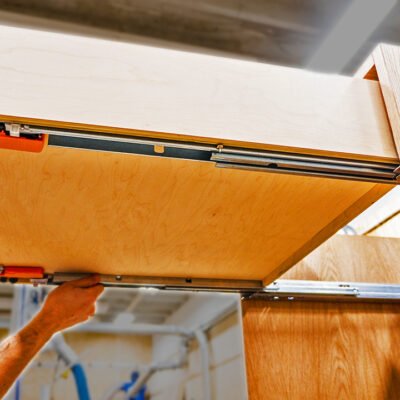Are you tired of looking at dull and worn-out wheels on your vehicle? Do you want to give them a fresh new look without having to replace them? Consider wheel powder coating! This popular method involves applying dry paint particles onto the surface of your wheels, resulting in a durable and long-lasting finish. But is it worth the investment? In this blog post, we’ll dive into the pros and cons of wheel powder coating so that you can make an informed decision. As a bonus, we’ll also discuss how fleet graphics companies can benefit from this process. So sit back, relax, and let’s explore the world of wheel powder coating together!
What is Wheel Powder Coating?
Wheel powder coating is a type of finishing process that involves applying dry paint particles onto the surface of your wheels using an electrostatic method. The powder particles are charged with static electricity, which causes them to stick to the metal surface and create a smooth and durable finish.
One advantage of wheel powder coating is that it provides excellent protection against corrosion, scratches, and other types of damage. This makes it an ideal choice for anyone looking to extend the lifespan of their wheels while also enhancing their appearance.
Another benefit of wheel powder coating is its versatility. With a wide range of colors and finishes available, you can customize your wheels to match your personal style or complement the look of your vehicle.
However, there are also some disadvantages to consider when it comes to wheel powder coating. For example, if not applied correctly or maintained properly over time, the finish may start to crack or peel away from the surface.
Wheel powder coating can be a great investment for those who want long-lasting protection and customization options for their wheels. Whether you’re a car enthusiast looking for added curb appeal or a fleet graphics company wanting uniformity across vehicles, this finishing process has something to offer everyone!
The Advantages of Wheel Powder Coating
Wheel powder coating is a popular method of enhancing the appearance and durability of wheels. Here are some advantages of wheel powder coating:
Firstly, it provides excellent protection against corrosion and rust. Powder-coated wheels can withstand harsh weather conditions, road debris, and chemicals that can cause damage to regular painted or polished wheels.
Secondly, wheel powder coating offers a wide range of color options to choose from. You can customize your wheels according to your preference and match them with the overall look of your vehicle.
Thirdly, powder-coated wheels are easy to clean and maintain. Unlike chrome or polished aluminum wheels that require special cleaning products, you just need soap and water for powder-coated ones.
Fourthly, wheel powder coating is an eco-friendly process as it produces less waste than traditional painting methods. The overspray from the process can be collected and reused in future projects reducing waste disposal costs.
A properly done wheel powder coating job adds visual appeal to any car or truck making it more attractive on the road.
These benefits make investing in wheel power coatings worth considering if you want long-lasting protection for your rims while adding aesthetic value at the same time!
The Disadvantages of Wheel Powder Coating
While wheel powder coating has many advantages, it also comes with a few disadvantages that should be considered before investing in the process.
One of the main drawbacks is that the coating can chip or scratch easily if not done correctly. This can occur during installation or from impacts while driving. Once chipped, the metal underneath can become exposed to moisture, and rusting may occur.
Another disadvantage is that wheel powder coating requires stripping down the wheels to their bare metal, which can be time-consuming and labor-intensive. If not done properly, this can lead to damage being caused to your wheels.
Additionally, custom colors and designs are limited when compared to traditional painting methods. Powder coatings come in a set range of colors and finishes whereas paint allows for more customization with color mixing and special effects like metallics or pearls.
Cost may also be a disadvantage as wheel powder coating tends to be more expensive than traditional painting methods due to its specialized equipment and techniques used by professionals trained in fleet graphics company.
The Cost of Wheel Powder Coating
When it comes to wheel powder coating, one of the biggest factors that come into consideration is the cost. Unlike traditional painting methods, powder coating can be more expensive due to the specialized equipment and materials used.
The exact cost of wheel powder coating can vary depending on a few different factors such as the size of your wheels, the type and quality of powder coat you choose, and whether or not you opt for any additional services like sandblasting or surface preparation.
On average, you can expect to pay anywhere from $150-$250 per wheel for professional-grade powder coating services. While this may seem steep compared to regular paint jobs, it’s important to remember that high-quality coatings are far more durable and long-lasting than traditional paints.
Another thing worth considering when looking at costs is how often you will need touch-ups or repairs with other types of paint jobs versus investing in a single long-lasting solution with powder coating.
Ultimately, while there is no denying that wheel powder coating can be an investment upfront, many car enthusiasts find it well worth it in terms of longevity and overall appearance.
Conclusion
Wheel powder coating is a great investment for those looking to enhance the appearance of their wheels and improve their durability. It provides excellent protection against harsh weather conditions, scratches, and corrosion while also adding an attractive finish.
Wheel Powder Coating strikes an ideal balance between aesthetics and functionality when executed well by trained professionals. With its long-lasting properties and ability to protect your wheels from damage caused by various elements including road debris; investing in this treatment option will undoubtedly pay off in the long run!





